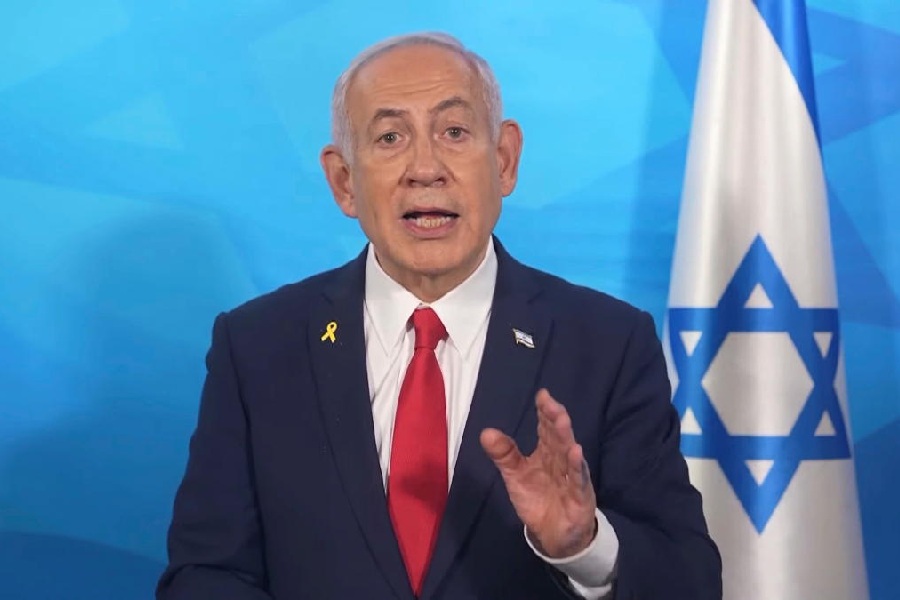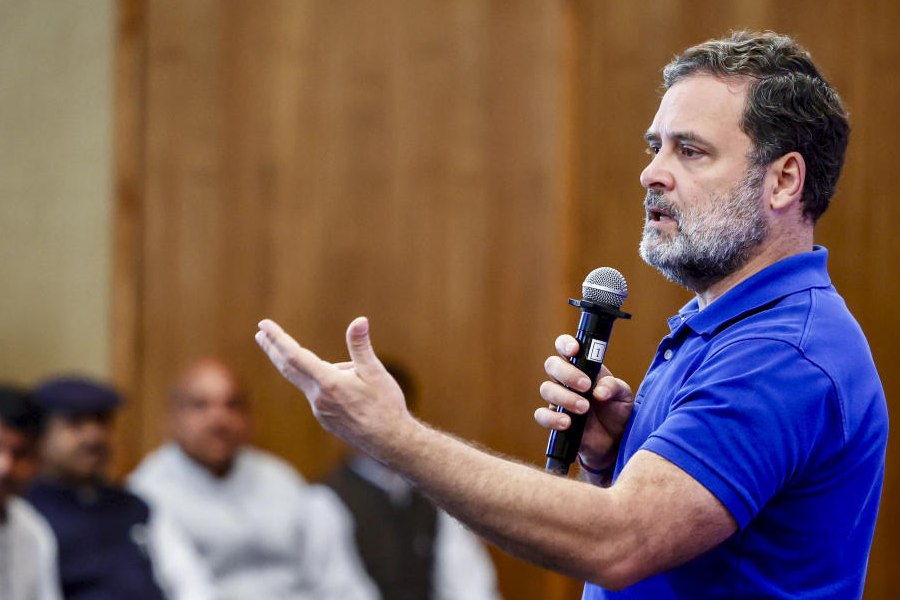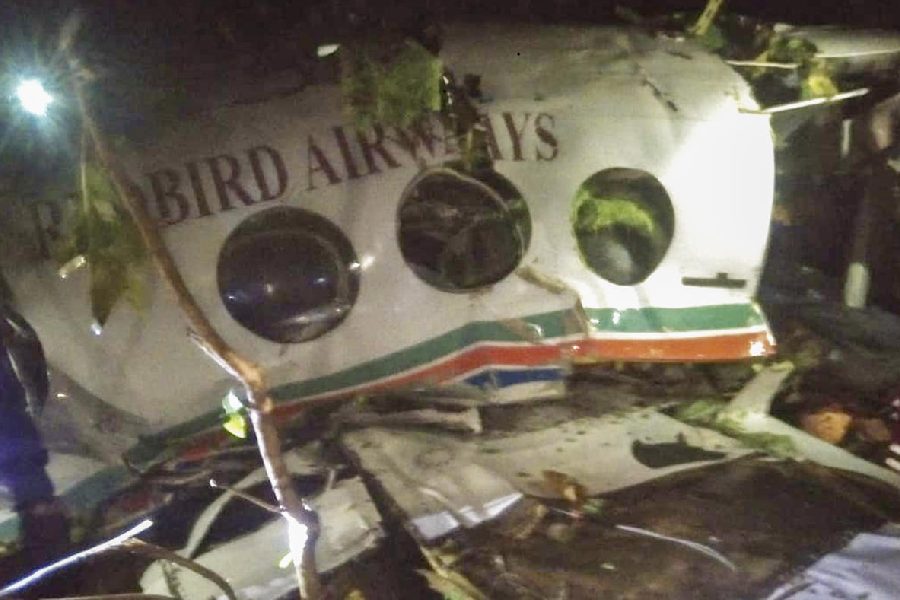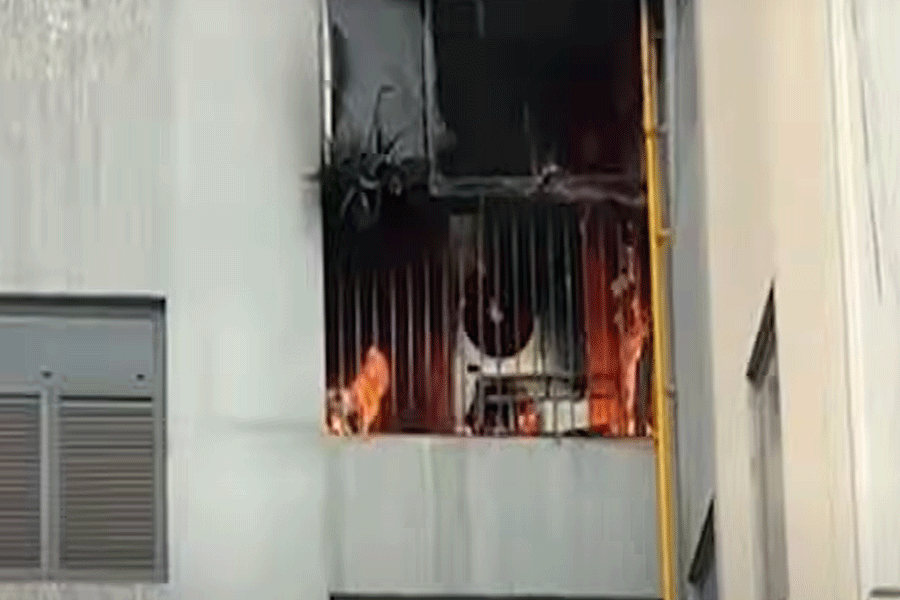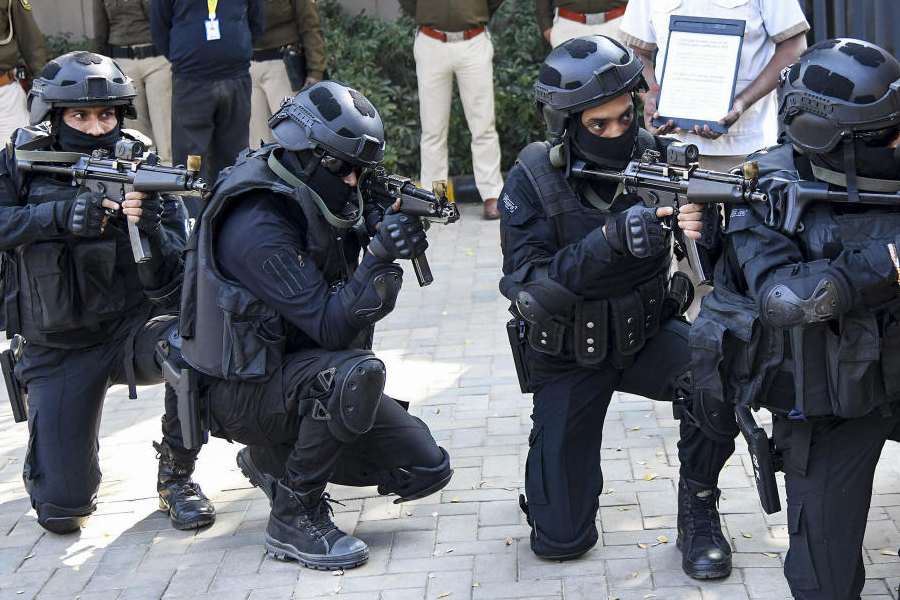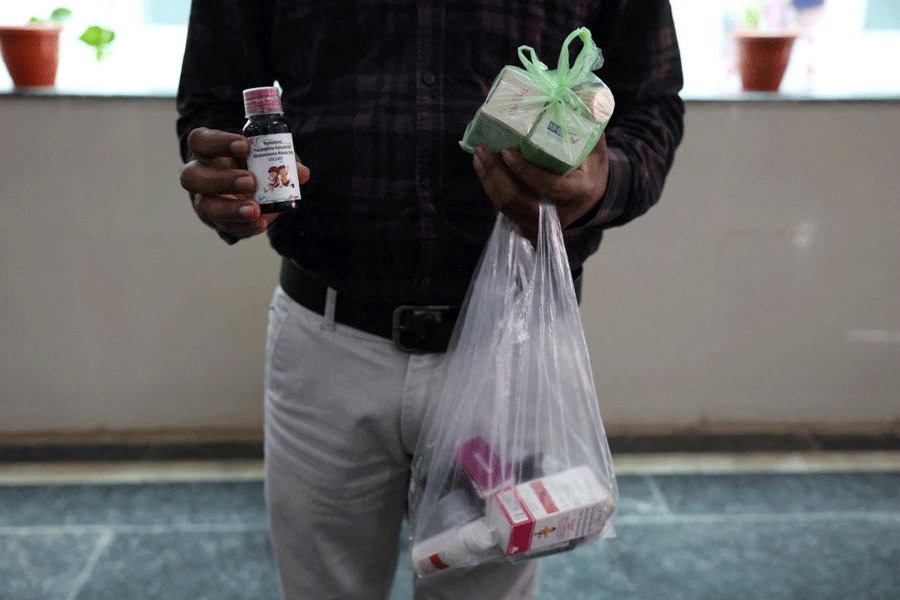Israel launched an expanded assault on Iran on Sunday, with direct strikes targeting its energy industry and Defence Ministry headquarters, while Tehran unleashed a fresh barrage of missiles blamed for the deaths of four people.
The simultaneous strikes represented the latest salvo since a surprise attack by Israel two days earlier aimed at decimating Tehran's rapidly-advancing nuclear programme.
New explosions boomed across Tehran as Iranian missiles entered Israel's skies in an attack that Israeli emergency officials said killed four people in a Galilee apartment building. Casualty figures were not immediately available in Iran, where Israel targeted its Defence Ministry headquarters in Tehran as well as sites that it alleged were associated with the country's nuclear programme.
Amid the continued conflict, planned negotiations between Iran and the United States over Tehran's nuclear programme were cancelled, throwing into question when -- and how -- an end to the fighting could come.
"Tehran is burning," Israeli Defence Minister Israel Katz said on social media, and Iranian state television said explosions were heard in the city's east and west.
Both Israel's military and Iran's state television announced the latest round of Iranian missiles as explosions were heard near midnight, while the Israeli security cabinet met. Iran's paramilitary Revolutionary Guard in a statement said that Iranian missiles targeted facilities of production of fuel for Israeli jetfighters. It said Iran will fire further missiles if Israeli strikes continue.
The Magen David Adom emergency service said one woman was killed, with over a dozen others wounded, when a two-story home in the north was hit. Within the hour, Israel's military said people could leave shelters.
Israel's ongoing strikes across Iran have left the country's surviving leadership with the difficult decision of whether to plunge deeper into conflict with Israel's more powerful forces or seek a diplomatic route.
World leaders made urgent calls to deescalate and avoid all-out war. The attack on nuclear sites set a "dangerous precedent", China's foreign minister said. The region is already on edge as Israel makes a new push to eliminate the Iranian-backed militant group Hamas in Gaza after 20 months of fighting.
The sixth round of US-Iran indirect talks on Sunday over Iran's nuclear programme will not take place, mediator Oman said. "We remain committed to talks and hope the Iranians will come to the table soon," said a senior US official, speaking on the condition of anonymity to discuss diplomacy.
Israel -- widely believed to be the only nuclear-armed state in the Middle East -- said its hundreds of strikes on Iran over the past two days have killed a number of top generals, nine senior scientists and experts involved in Iran's nuclear programme. Iran's UN ambassador has said 78 people were killed and more than 320 wounded.
Prime Minister Benjamin Netanyahu, who has made the destruction of Iran's nuclear programme his top priority, said Israel's strikes so far are "nothing compared to what they will feel under the sway of our forces in the coming days".
In what could be another escalation if confirmed, semiofficial Iranian news agencies reported an Israeli drone struck and caused a "strong explosion" at an Iranian natural-gas processing plant. It would be the first Israeli attack on Iran's oil and natural gas industry. Israel's military did not immediately comment.
The extent of damage at the South Pars natural gas field was not immediately clear. Such sites have air-defence systems around them, which Israel has been targeting.
Iran calls nuclear talks 'unjustifiable'
Iran says its nuclear programme is for peaceful purposes only, and US intelligence agencies have assessed that Tehran was not actively pursuing the bomb. But its uranium enrichment has reached near weapons-grade levels, and on Thursday, the UN's atomic watchdog censured Iran for not complying with obligations meant to prevent it from developing a nuclear weapon.
Iran's top diplomat said on Saturday the nuclear talks were "unjustifiable" after Israel's strikes. Abbas Araghchi's comments came during a call with Kaja Kallas, the European Union's top diplomat.
The Israeli airstrikes were the "result of the direct support by Washington", Araghchi said in a statement carried by the state-run IRNA news agency. The US has said it is not part of the strikes.
On Friday, US President Donald Trump urged Iran to reach a deal with the US on its nuclear programme, adding that "Iran must make a deal, before there is nothing left".
US helps to shoot down Iranian missiles
Iran launched its first waves of missiles at Israel late on Friday and early on Saturday. The attacks killed at least three people and wounded 174, two of them seriously, Israel said. The military said seven soldiers were lightly wounded when a missile hit central Israel, without specifying where.
US ground-based air-defence systems in the region were helping to shoot down Iranian missiles, said a US official who spoke on the condition of anonymity to discuss the measures.
Israel's main international airport said it will remain closed until further notice.
Earlier on Saturday, Israel's army spokesman, Brig. Gen. Effie Defrin, said Israel had attacked more than 400 "missile-related" and other targets across Iran, including 40 in Tehran, where dozens of fighter jets were "operating freely". He said it was the deepest point Israel's air force had operated. (AP)

